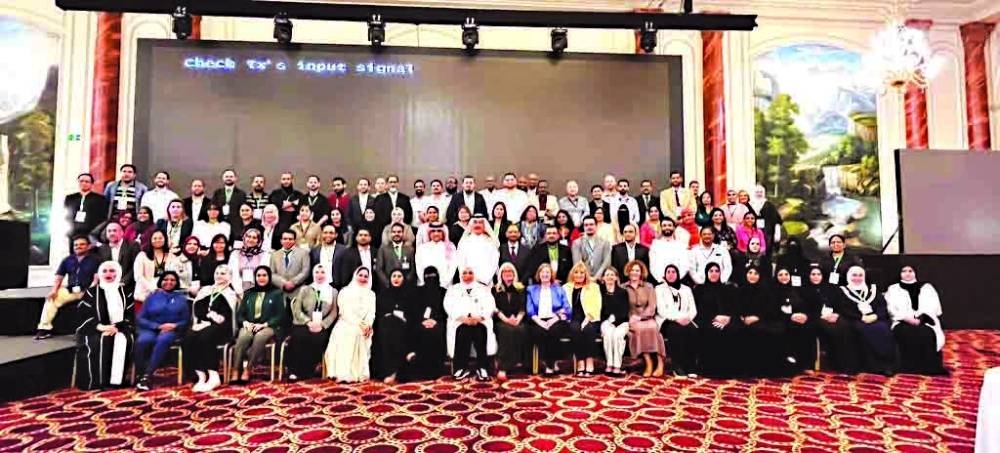With a view to supporting a better quality of life for older adults in Qatar, the Department of Geriatrics and Long-Term Care at Hamad Medical Corporation (HMC) has teamed up with Hamad Healthcare Quality Institute (HHQI) and the Institute for Healthcare Improvement (IHI).
The aim is to implement an evidence-based approach to promote age-friendly care that addresses the unique needs and wants of the target group, it was announced Sunday.
Becoming an Age-Friendly Health System entails reliably providing a set of four evidence-based elements of high-quality care, known as the “4Ms” to all older adults in a system. They are (1) What Matters - recognition of older adult’s specific care preferences; (2) Medication - reviewing medication holistically from a more age-friendly perspective; (3) Mentation - prevent, identify, treat, and manage dementia, depression and delirium across settings of care; (4) Mobility - encouraging daily movement in older adults to help them maintain function.
Dr Abdulla al-Ansari, chief medical officer at HMC, noted: “This evidence-based approach will enhance the care delivered to older patients in Qatar. The collaboration between our geriatric team, the quality improvement advisers, and IHI will enable HMC to spread knowledge about age-friendly healthcare systems and build capacity and capability within our organisation, and we will be happy to share our knowledge with others outside our organisation.”
Dr Hanadi al-Hamad, national health strategy lead for healthy ageing, chairperson for Geriatrics and Long-Term Care at HMC, and medical director at Rumailah Hospital and the Qatar Rehabilitation Institute, highlighted that this collaborative complements the extensive work that has been carried out to deliver more specialised, evidence-based healthcare to Qatar’s older population.
“We have come a long way in our efforts to provide more targeted and integrated geriatric care that addresses the specific needs and wants of our patient population. The “4Ms” provide a framework for us to build on the work we have done so far and enable us to imbed age-friendly system concepts across HMC”, said Dr al-Hamad. “This work aligns with the work that is being carried out within the WHO Collaborating Centre for Healthy Ageing and Dementia, recently established as a partnership between the WHO and the Department of Geriatrics and Long-Term Care at HMC.”
The Age-Friendly Health Systems Collaborative in Qatar aims to improve access to healthcare to enhance health outcomes and the quality of life for older adults. A key focus is on using resources, tools, and best practices that are tried and tested, and this expertise is being provided by HHQI. Jointly, the HHQI faculty and geriatric healthcare teams are promoting cross-collaboration among facilities and teams to share ideas, successes, and opportunities for improvement.
Nasser al-Naimi, deputy chief of quality, and director HHQI and the Centre for Patient Experience and Staff Engagement said: “Our goal is to enhance patient safety and align the care we provide to our older adults to what matters to them, their family and caregivers. We have multiple programmes of work that support this goal. The Age-Friendly Health Systems Collaborative is one approach that aligns with the Flow Collaborative work that has been progressing for several years. Recognizing the unique needs of older geriatric patients, the Flow Collaborative also addresses the aim to deliver the “Right care” in the “Right place” at the “Right time”.
Age-Friendly Health Systems is an initiative of The John A Hartford Foundation and IHI in partnership with the American Hospital Association and the Catholic Health Association of the US to meet this challenge head on.

Officials mark the occasion.
